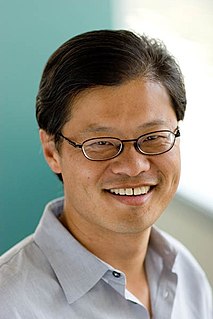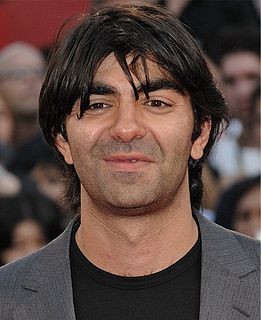A Quote by Don DeLillo
We live in an age of rapid mass media, television, Internet. They determine our tempo, not books.
Related Quotes
The arrival of television established a mass-media order that dominated the last 50 years. This is a personal media revolution. The distinction between the old order and the new order is very important. Television delivered the world to our living room. In the old media, all we could do was press our noses against the glass and watch.
(Howard Dean) is proving that the Internet is a better, cheaper, and faster way to raise money than the old glad-handing of special interests and fat cat donors. He's also about to demonstrate that the Internet is a better place to spend campaign dollars than are TV stations and media time buys. The fact that Internet communications is free makes one-on-one retail politics more effective, more rapid, and less costly than mass communication.
The Second Wave Society is industrial and based on mass production, mass distribution, mass consumption, mass education, mass media, mass recreation, mass entertainment, and weapons of mass destruction. You combine those things with standardization, centralization, concentration, and synchronization, and you wind up with a style of organization we call bureaucracy.
What's really going on here is, this is a media shift. It's comparable to what happened in the 1950s and the birth of electronic mass media back then.This is the birth of a new kind of personal media, where, instead of we're all watching one program, we're all watching each other. And the history of media makes it really clear. Whenever we have a big innovation, the first wave of stuff we do is pretty crummy. The printing press gave us pornography, cheap thrillers, and how-to books. Television gave us Newt Minow's vast wasteland.
What's interesting about the shift from an industrial age to a technological age is that we keep inventing new media: movies, records, radio, television, the Internet, and now ebooks - and one of the things that's most interesting about the invention of a new medium is watching it reinvent itself as it penetrates the culture.
We have currently a built-in allergy to unpleasant or disturbing information. Our mass media reflect this. But unless we get up off our fat surpluses and recognize that television in the main is being used to distract, delude, amuse, and insulate us, then television and those who finance it, those who look at it, and those who work at it, may see a totally different picture too late.
I try to teach a modernist and postmodernist position. On one hand, if you're a painter, you need to know the history of painting. But I'm also interested in the moment we live in. I love television, and movies, and books, and music. So I also think of art as this cultural production along with all this other stuff that's happening. So that's a kind of postmodern, not media-specific, but the times, what is your art relevant to this moment we live in versus media specificity? That's my teaching philosophy, both of those things are important.







































